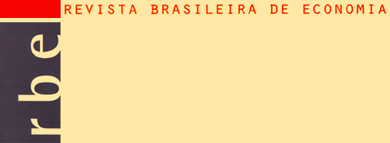This paper analyzes the sustainability of fiscal policy in Brazil since the financial reform of 1965 and discusses how the relationship between the Treasury and the Central Bank has determined the federal government's capacity to finance itself. A sustainable policy is defined as one such that the discounted government debt as a ratio to the GDP is backed by expected primary surpluses of equal present-value. In the context of an infinite-horizon framework, sustainability is tested through the mean-zero stationarity of the discounted debt/GDP ratio. Although the overall results indicate sustainability, tests on subsamples show that the fiscal policy was sustainable prior to 1980, but it assumed an unsustainable path during the 80's and early 90's.
fiscal policy; federal debt; central bank independence; Brazil






























